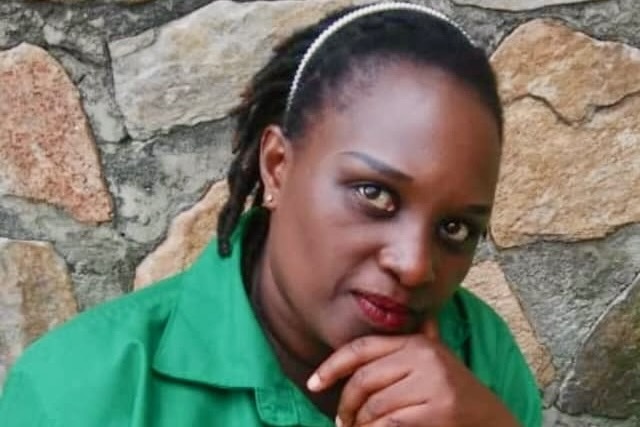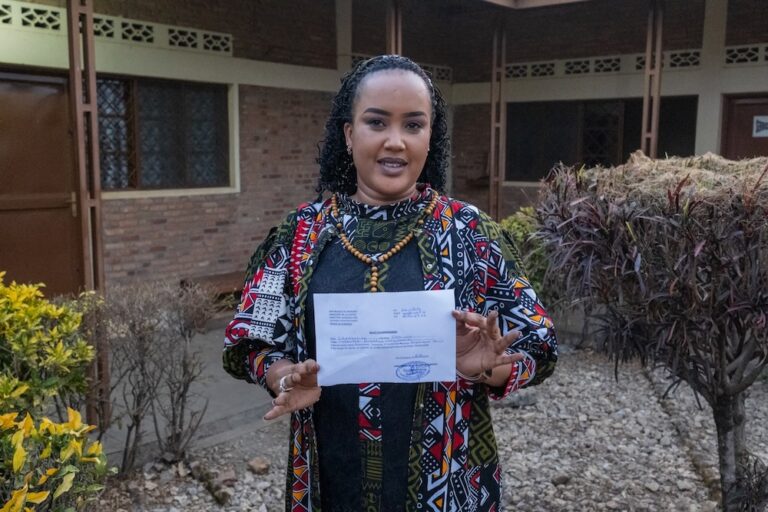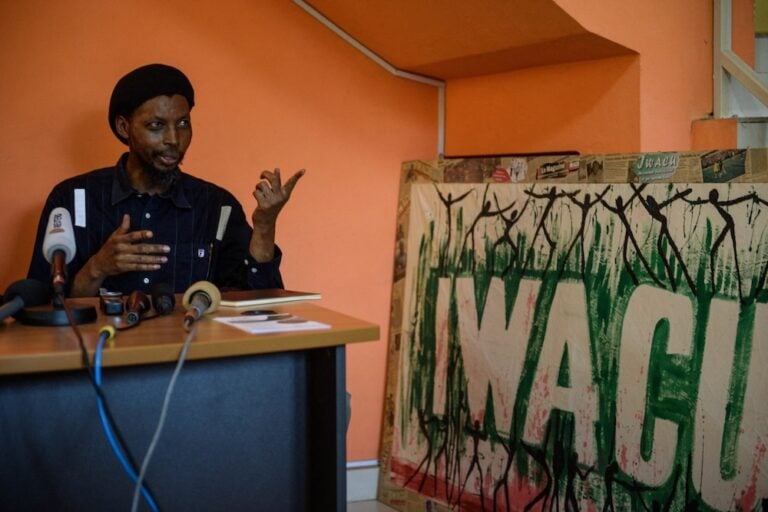Journalists and civil society activists who express critical views are labelled political opponents and subjected to arrests and threats.
(Human Rights Watch/IFEX) – Nairobi, November 23, 2010 – Burundi is cracking down on civil society, media, and opposition parties in the wake of troubled local and national elections from May through September 2010, Human Rights Watch said in a report released today.
The 69-page report, “Closing Doors?: The Narrowing of Democratic Space in Burundi,” documents abuses including torture, arbitrary arrests, banning of opposition activities, and harassment of civil society groups. Human Rights Watch called on the government to end the abuses and to strengthen institutional mechanisms to promote accountability by government officials and security forces.
“With the elections over, Burundi has a perfect opportunity to reach out to its critics and to work with them to build a more inclusive, rights-respecting state,” said Rona Peligal, Africa director at Human Rights Watch. “But instead we are seeing arrests of journalists and opposition party members, and harassment of civil society, crushing hopes that this could be a new beginning for Burundi.”
The report is based on more than 100 interviews with journalists, civil society activists, opposition party members, government officials, diplomats, and election monitors. It documents the Burundian authorities’ increasing efforts to silence dissenting voices before, during, and since the elections.
The government recognized the outcome of an illegal “party congress” held by dissident members of the main opposition party, the National Liberation Forces (FNL), at which party leaders were replaced with individuals compliant with the ruling party. It has prohibited a coalition of opposition parties, Alliance of Democrats for Change (ADC-Ikibiri), from carrying out activities. Journalists and civil society activists who express critical views are labeled political opponents and subjected to arrests and threats.
The government has shown some indications of openness, Human Rights Watch said. It recently expressed willingness to engage in a dialogue with Human Rights Watch for the first time since expelling Human Rights Watch’s Burundi-based researcher in June, as the elections were getting under way. It also has taken some steps toward establishing institutional mechanisms to ensure accountability for human rights abuses.
However, overall, restrictions on public expression and political activity have increased, beginning shortly after opposition parties rejected the results of the May communal, or municipal, elections. After the ruling National Council for the Defense of Democracy-Forces for the Defense of Democracy (CNDD-FDD) won by a large margin, opposition parties contended that there had been massive fraud and boycotted the subsequent legislative and presidential elections. Interior Minister Edouard Nduwimana responded by banning all activities by parties not taking part in the presidential elections. The boycott left the incumbent president, Pierre Nkurunziza, the only presidential candidate; he was elected to a second term in June.
During the elections, government authorities arrested several hundred opposition members. Some had participated in violent activities, including a series of grenade attacks during the presidential and legislative campaigns. But others were arbitrarily arrested. Some of those detained told Human Rights Watch and other organizations that they had been tortured. The government illegally imposed travel restrictions on at least two opposition members.
The government also targeted journalists and civil society. Four journalists were arrested between July and November. One of them, Jean Claude Kavumbagu, remains in prison on treason charges for publishing an article that criticized the state security services. Journalists and activists involved in a campaign calling for justice for Ernest Manirumva, an anti-corruption campaigner killed in April 2009, were subjected to death threats and surveillance, particularly after the Bujumbura Appeals Court held a first public hearing on the case in July.
(. . . )


